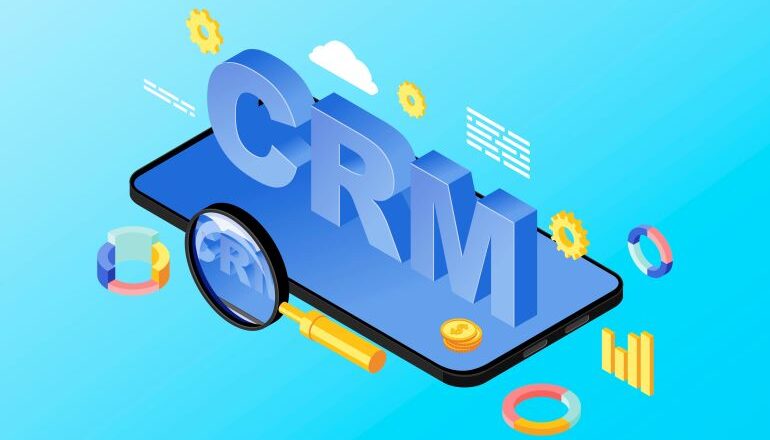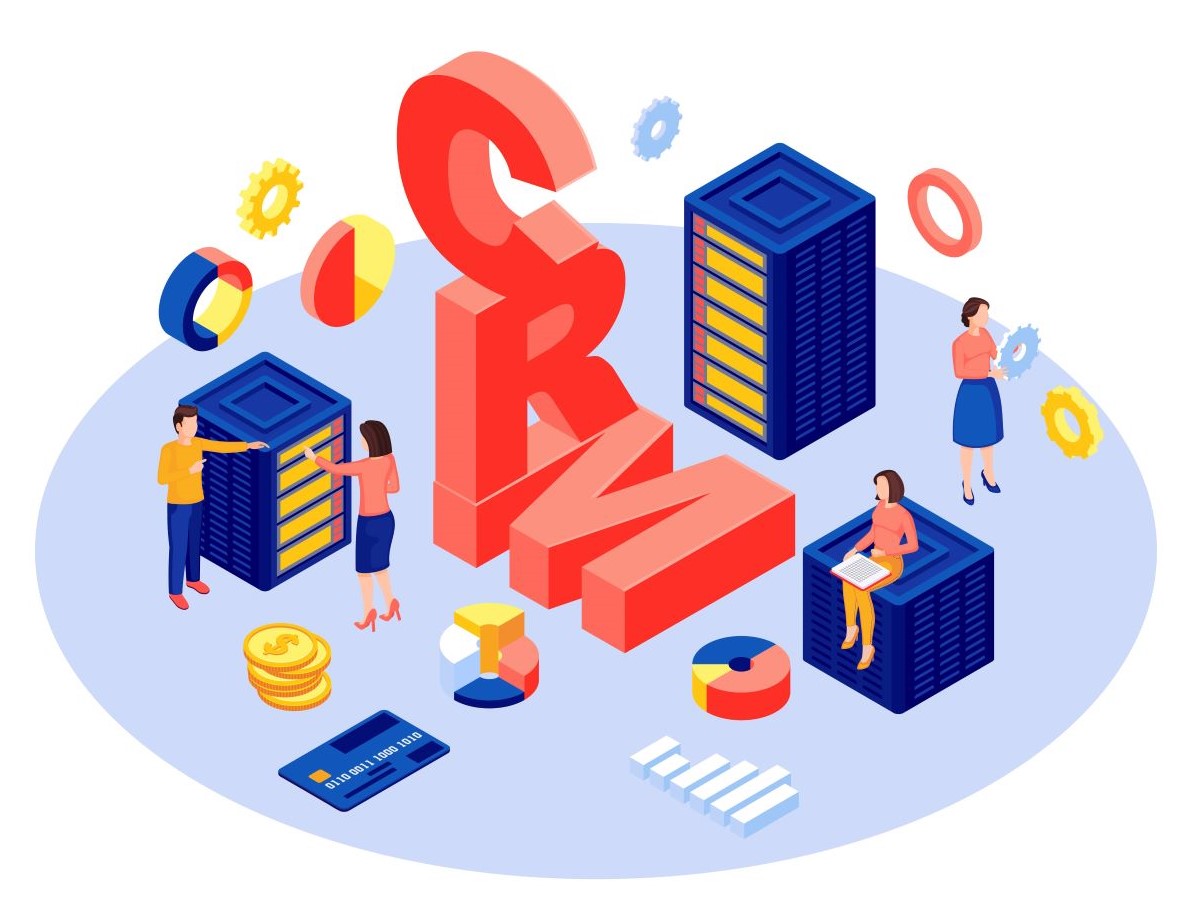Much like any other service business, it’s important for you to establish a clear picture of how your day-to-day operations are going. Not only that, but you also need to establish a central database to gather, monitor, and compare information regarding your operations – to get the big picture of how your moving business is performing. And rather than keeping track of all this with pen and paper, why not use the advantage of software tailored for moving companies? After all, implementing the use of a CRM system for your business can only prove beneficial in the long run. It’s simply a matter of choosing the right CRM. On the other hand, the downsides of running a moving business without a CRM are numerous. In this article, we explore some of the most impactful ones.
How do service businesses benefit from CRM software?
- The purpose of a moving company CRM is to gather and store information regarding interactions with leads, relationships with customers, and moving jobs – all integrated into a single system.
And no matter the size or type of your moving company, you can’t neglect the benefits of using CRM software. From managing leads to controlling the sales process, maintaining relations with customers, and lowering the amount of time you waste on manual tasks – it is all easier to coordinate with CRM. And this is just the tip of the iceberg when discussing the influence of CRM on the internal processes of your business. Consider the following:
- Better for tracking and managing moving leads
- Makes your sales pipeline more engaging and profitable
- Boosts your customer service
- Improves your digital marketing tactics
- Helps you navigate through daily activities and operations
- Boosts the performance of your employees
- Simplifies data gathering and reporting
- Automates financials and accounting
Seven downsides of running a moving business without a CRM

1. You can’t monitor where your customers come from
The more a business knows about its customers, the better it will be equipped to establish a long-term relationship with them. As a moving business, defining the main sources of your moving leads can play a crucial role in how you run your company. However, establishing those relationships with customers early on can be challenging without a CRM in place. It is important to understand where your customers are coming from. What was the channel they found you through? And what lead them to that particular channel and your moving company?
Simple questions, but ones that take up time and energy to answer manually. Time can be better spent on perfecting the channels that are getting customers to your doorstep. And the energy that you can invest in improving those channels further. And one of the main downsides of running a moving business without a CRM is that you can do neither of those. However, granting your Sales department a tailored CRM solution to gather and store that data will make it easier to measure the impact of each channel. And it will help improve the communication process and your relationships with customers.
2. Your Sales/Leads contacts and data can be misleading
Unlike people, software solutions are less likely to make mistakes, especially when it comes to collecting data. Not having a proper CRM system in place leaves your team exposed to gathering irrelevant or incorrect data. And this can easily affect your ability to convert leads into customers.
By digitizing customer service, you are able to maintain a higher level of control over your contacts. A CRM software can alert to outdated, missing, or problematic data. And this can prove extremely useful when attempting to contact new customers and retain past ones. If a change of contact information for customers does occur, your team will be a click away from updating it. And your CRM will save and store both the original and updated information. That way, no matter which member of your staff reaches out to customers, they will have historic data to guide them. As any sales rep knows, this can make a real difference in closing a moving job.
3. Higher chance of losing moving leads
It’s a simple formula – so long as you manage each of your leads with the same amount of devotion, you will have a successful business. However, one of the downsides of running a moving business without CRM is that there are too many tools and apps on the table. And this can be overwhelming for your staff since they need to:
- Learn how to use every tool;
- Spend time inputting data from each app;
- Lose time and productivity on tracking data from multiple systems;
And all this results in very high potential of losing moving leads that would otherwise be easy to convert. And instead of focusing on finding new customers, your staff will be occupied with holding on to existing ones. On the other hand, having CRM software in place provides a centralized dashboard as a single tool that covers it all. It saves time and significantly lowers the chances of losing leads.
4. Easier to lose track of sales goals and reach them
The strength of any moving business lies in its ability to generate moving leads and close moving jobs. If your sales team underperforms, it negatively reflects on all other departments as well. And among the many downsides of running a moving business without a CRM is that you are able to keep track of the energy that your team is punching in.
CRM software helps you build a healthy sales pipeline by offering constant insight into the performance of your employees. Whether you are looking to check if they hit their targets or are following all procedures, putting in extra hours, etc. – you can track it all through your CRM. And this can also help you differentiate between team members that are dominating and those that might need more guidance or incentive.
5. Lack of data protection
With the implementation of GDPR and other similar regulations across the globe, businesses need to revisit their digital security. And with the many CRM security features that you can find, it can be easy to guarantee peace of mind to customers. Additionally, you will be in lesser risk of cyber attacks and loss of sensitive data, making your business more stable on a long-term basis.
In our last article, we discussed the ways in which CRM can contribute to GDPR compliance. Whether you are going to implement user access rights or other security measures – it’s important to have contingency plans. Additionally, having a backup for all your data in place is always a good practice. And you will hardly find a better or more organized data backup system than the one a proper CRM offers.
6. Inability to get a holistic view of your business model
With so many targets and goals to consider, it can be easy to lose perspective of the bigger picture. This is an issue for many business owners – one that only becomes more difficult to resolve as a company grows. And to get a proper idea of just how your moving business is performing as a whole, you need to gather accurate data from each segment of it. That task can take up a lot of time and resources, especially if you don’t consider automating the process with the help of customized software.
A tailored CRM solution can ensure a quick and efficient way to accumulate data from all your departments while offering you an easy way to create detailed reports for each. Finally, having all that data and reporting in one place can give a business owner a general idea of where their resources are lacking and where they are covered. Basically, you need to be able to see beyond the comfort of your chair – and CRM can help you do that.
7. You lose time and resources on manual reporting and forecasting
Touching on the previous point of getting a holistic view based on segmented reports, this is another of the downsides of running a moving business without a CRM. The very thought of having to take out time to analyze and gather data from each department separately leaves a vast waste of resources in its tracks. CRM systems offer the option to not only create daily, weekly, monthly, or annual reports – but it also offers plenty of forecasting opportunities. And having the ability to predict the outcome of your lead generation and engagements can lead to more conversions.
Time for a CRM?

As you can see, the downsides of running a moving business without a CRM in place can be very challenging to handle. That is why we explored this topic, to not only boost the effectiveness of CRM implementation but also the point that you can grow your business with it. So, take time to consider just how your moving company can boost performance with this decision and start considering it. Once you assess everything and weigh all your options, contact us for a free demo.

